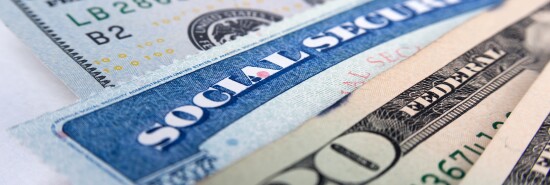
Did Russian gangs steal more from US taxpayers than we gave Ukrainians to defend themselves?
Matt Weidinger
Video Embed
The scale of pandemic benefit fraud is massive. But worst of all, it may have benefited our adversaries.
Senior House Republicans promised more aggressive oversight of pandemic benefit fraud if they won a majority in the midterm elections. There is plenty to do, evidenced by recent media reports that $600 billion may have been ripped off. And even that could prove to be an underestimate.
US CONFIRMS POLAND STRIKE ‘LIKELY THE RESULT OF A UKRAINIAN AIR DEFENSE MISSILE’
Experts suggest much of that was stolen by overseas criminal gangs, including in Russia and China. Taxpayers deserve to know the truth about pandemic fraud, including whether Russians might have stolen more from U.S. taxpayers than we have even given to the Ukrainians to defend themselves against a Russian invasion.
House Minority Leader Kevin McCarthy (R-CA) said recently that he wants to focus on “all the billions of dollars that have been misspent” on pandemic benefits. Republicans on the House Ways and Means Committee are already on the case. Committee ranking member Kevin Brady (R-TX) has long called the rip-off of pandemic unemployment benefits “the greatest theft of tax dollars in American history.” He also introduced legislation encouraging more recovery of misspent funds, which has gone nowhere under Democratic leadership.
The degree of unemployment benefit misspending alone is staggering. The Department of Labor inspector general in March testified that “at least” $163 billion “could have been paid improperly, with a significant portion attributable to fraud.” That was based on an estimated 18.7% error rate, which doesn’t include elevated misspending under Pandemic Unemployment Assistance, the most abused program. This estimate also fails to count the chaotic first months of the pandemic, when another inspector general report suggested error rates reached 42.4% across four key states. Counting those omissions, other experts estimate as much as $400 billion in misspending — or about 15 times all unemployment benefits paid in 2019.
Fraud from other programs adds to the grim total. The Paycheck Protection Program and the Economic Injury Disaster Loan program spent almost $1.2 trillion combined during the pandemic. Researchers at the University of Texas estimated that 15% of PPP loans may have been fraudulent, with losses reaching $117 billion. Sen. Dick Durbin (D-IL) reported that his own son’s identity was stolen to secure a $140,000 PPP loan. The Small Business Administration’s inspector general also identified over $86 billion in Economic Injury Disaster Loan benefits as “potentially fraudulent.”
Additional billions were misspent on food stamps and pandemic food aid, including $250 million in a single Minnesota fraud case, housing assistance, healthcare, stimulus checks, disability benefits, and much more. Add it all up, and a New York Post op-ed headlined “$600 billion was stolen from the American people” starts to sound conservative.
Investigators point to loose program rules and identity theft as driving most rip-offs. But another factor that gets too little attention is the source. As NBC News reported, “Overseas organized crime groups flooded state unemployment systems with bogus online claims.” One expert, Haywood Talcove of LexisNexis Risk Solutions, “estimates that at least 70% of the money stolen by impostors ultimately left the country, much of it ending up in the hands of criminal syndicates in China, Nigeria, Russia and elsewhere.” Talcove added, “These groups are definitely backed by the state.”
A July resolution introduced by the late Rep. Jackie Walorski (R-IN) seeks clarity on how much foreign criminals stole. It directs the secretary of the Labor Department to provide Congress all documents related to unemployment benefits that flowed to “criminal syndicates and fraudsters in foreign countries,” including in Russia and China. Like Brady’s bill, her resolution has been rejected by the majority. But the resolution, the last legislation Walorski introduced in her distinguished career, points to an obvious question: How much exactly did criminal gangs in Russia and China steal?
The answer is unknown — or at least not publicly available. But consider where the numbers lead. Let’s assume the overly conservative inspector general estimate of “at least” $163 billion in misspending and that 50%, not 70%, as Talcove suspects, of misspent funds wound up overseas. If that’s correct, then some $80 billion in unemployment benefits was looted by foreign criminals. If even a quarter of that wound up in Russia, that would exceed the $18 billion in security assistance the United States has given Ukraine since January 2021. If you assume the greater expert estimates for total fraud and foreign theft, then the losses to Russian criminals might even exceed the $60 billion in all humanitarian, economic, and military aid authorized for Ukraine. And that’s without considering the whereabouts of hundreds of billions of tax dollars lost to fraud involving PPP and other pandemic benefits.
Getting to the bottom of this outrage would be a great place for the new Congress to start its increased oversight.
CLICK HERE TO READ MORE FROM THE WASHINGTON EXAMINER
Matt Weidinger is a senior fellow and Rowe Scholar at the American Enterprise Institute.
